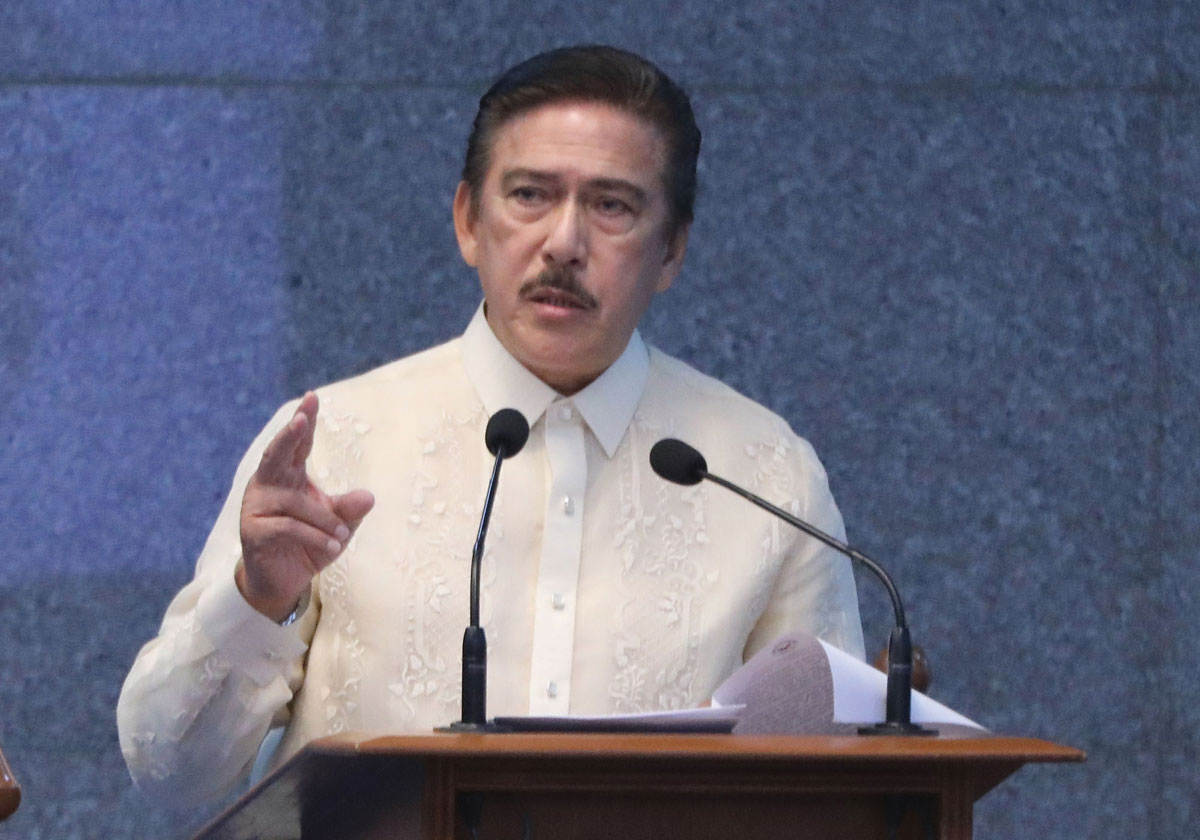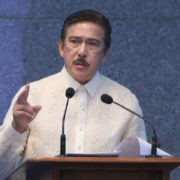
PHILIPPINE Senate President Vicente Sotto III on Tuesday, June 2, said that the proposed anti-terrorism law is “as good as passed,” after President Rodrigo Duterte certified the bill as urgent.
“It’s as good as passed. It will just need my signature if it comes back to us after ratification then I will transmit to the president,” he said.
Duterte on Monday, June 1 said the immediate passage of House Bill No. 6875 ,which amends the Human Security Act of 2007, aims to “address the urgent need to strengthen the law on anti-terrorism in order to inadequately and effectively contain the menace of terrorist acts for the preservation of national security and the promotion of general welfare.”
Once the anti-terror bill becomes law, any person who shall threaten to commit terrorism and those who will propose any terroristic acts or incite others to commit terrorism shall suffer the penalty of 12 years in prison.
Sotto also defended to the proposed bill’s defense, telling critics to read it first before reacting.
“Terrorists or their supporters are the only ones [should] be afraid of the bill,” he added.
Senator Panfilo Lacson also assured that there are âenough safeguards surrounding the measure.
“The concerns being raised by the progressive and leftist groups as well as human rights advocates have been adequately addressed during the Committee on National Defense and Security public hearings, as well as the debates and interpellations in plenary,” he said.
“Enough safeguards are in place. The critics — some of whom had been extended the opportunity to help craft the bill — should read first the bill itself to see for themselves what I am saying,” Lacson added.
Meanwhile, Malacañang insisted that there are no “draconian provisions” in the bill.
“All of those provisions are based on laws of other countries that are effective in fighting terrorists,” Presidential Spokesperson Harry Roque said in Filipino.
He also pointed out that the country’s Human Security Act of 2007, also known as Republic Act (R.A) 9372, is the most lenient out of all the anti-terrorism laws in among countries.
“We have three volume books published by Cambridge comparing the anti-terrorism laws of countries around the world and one of the most lenient laws is the Philippines’ Human Security Act,” Roque said.
Reject new law, public urged
A group of rights lawyers exvpressed opposition to the proposed Anti-Terrorism Bill “as antithetical to human rights and democracy in the Philippines.”
The Concerned Lawyers for Civil Liberties (CLCL) urged the public to reject the “unconstitutional” proposed legislation.
Led by former senatorial candidate, and staunch critic of the current administration Chel Diokno, CLCL said said the bill contains unconstitutional provisions that also “weaken protections against abuse and misuse.”
The National Union of Peoples’ Lawyers (NUPL), for its part, slammed the bill as it would “erode human rights and institutionalize impunity.”
The bill essentially seeks to toughen up the nation’s anti-terrorism policies. Its Senate version, approved last February 2020, was adopted by the House committees on public order and safety, and defense and security—just as the Philippines was gearing into shifting to general community quarantine while COVID-19 infections continue to rise.






